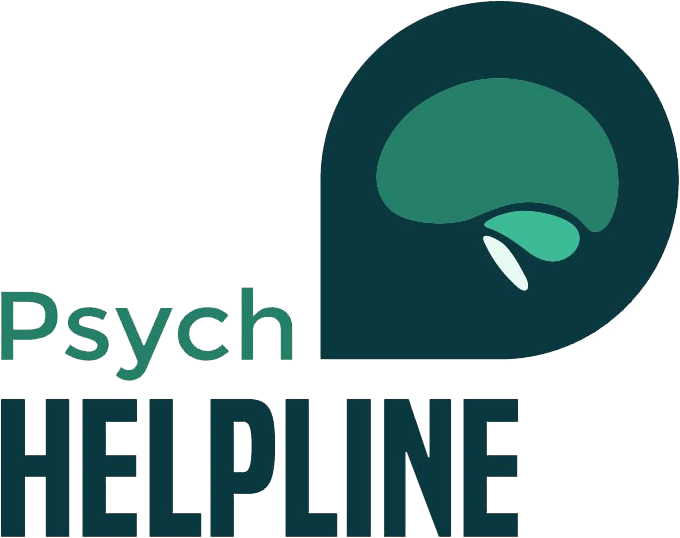Table of Contents
Are you on an all-time low nowadays? Perhaps the lack of motivation and increase in fatigue is starting to affect your everyday activities way more than they used to. We all have those days when all you want to do is lie down without a single worry about the world. But, the situation’s way too extreme if each of your days looks identical to that one day. If you’re overwhelmed by sleepiness, constantly drowsy and it’s all starting to impact your health, you might be dealing with anergia.
“Anergia Is A State Of Total Passiveness”
Anergia is the constant lack of energy and it’s categorized by the continual presence of lethargy. According to a 2017 survey conducted on the prevalence of anergia; Around 15% to 35% of people with depression struggle with an atypical depression-like anergic depression.
5 Symptoms Of Anergia You Can Easily Spot
- Lack of motivation: As a result of anergia you might not find any force inside you that pushes you to achieve something. Consequently, people struggling with it tend to be late at work, push tasks to the next day, skip chances to socialize, etc.
- Lack of interest: Even if you enjoyed a habit in the past while dealing with anergia you might not find it interesting enough. You’ll find a reason to skip the Pilates class or pottery lessons you once loved to attend.
- Heaviness or Tiredness: You’ll be more likely to spend good hours of the day lying around on a bed or couch. You’ll find yourself reaching out for comforting foods and feeling tiredness around the eyes particularly.
- Constantly overloading on caffeine: Due to energy levels being on an all-time low, people with anergic depression would try to amp up them artificially. You’ll mostly spot them with a cup of freshly brewed coffee or tea because they simply can’t function without it.
- Pushing the scheduled mark: People dealing with anergia tend to sleep way longer than most people do. One can always expect them to skip breakfast and land straight up on the lunch table. They’re late for work and school. Even when they arrive early you’ll find them leaning on to the back of a wall or office chair.
5 Principle Causes Behind Anergia
An Underlying Health Condition
As we’ve established earlier, anergia isn’t a disease but rather a symptomatic indication of something else being wrong. Sometimes the reason behind its presence is right in front of our eyes but we’re really not able to detect it. If someone’s continually dealing with anergia on the regular, running your physical tests would be a great idea. Not only would you have a great idea about your vitals, but you’ll also be made aware of any underlying medical emergencies that require immediate attention. Here are some examples of a few underlying physical health issues that mostly lead to anergia;
- Hyperthyroidism is a condition that’s mostly linked with anergia. In this condition, the thyroid gland doesn’t produce enough hormone resulting in hormonal imbalance. Consequently, a person can feel more lethargic and on the edge apart from its other symptoms
- If you often experience the irresistible urge to sleep during the day or at irregular hours, narcolepsy can be a huge possibility. It’s a neurological sleep disorder that’s categorized by extreme laziness. If you’ve already run the tests and cracked the code, be quick while seeking treatment. That’s because narcolepsy can be highly dangerous for those who operate heavy machinery at work and for the ones that are on the road quite often.
- If your family has a history of heart conditions you might be in the loop too. Accordingly, to various studies conducted on chronic lethargy, people with undetected acute coronary ailments often deal with an extreme form of anergia. The presence of a cardiac disorder for es the heart to pump blood at an extremely low rate. As a result of this, the fluid build-up in your lungs can lead to dizziness and shortness of breath. Consequently, you experience weakness and extreme laziness.
- Anemia is another underlying health condition that can result in anergia. Fatigue and weakness are perhaps some of the most textbook signs of anemia. People suffering from anemia often experience extreme laziness, lightheadedness, and weakness which are along the lines of anergia.
- Now, low vitals are really something that can cause problems. It’s a huge indicator that your diet lacks the nutrients you’re supposed to be consuming. Not only would it affect your health in the long run it can contribute to chronic laziness. The lack of iron, folic acid B12, and D contribute to anergia.
So, if an underlying health condition seems to be the culprit inducing anergia, one should be looking into convenient and affordable ways of getting themselves tested. Those who are on the look out for a confidential resource of either in-lab and at-home testing, Testing.com seems like the right place to start.
Medication
If you’ve recently introduced a surge in medication in your routine, it can lead to anergia. There’s a long list of medicinal treatments and drugs which contribute to anergia. Some of these include;
- Antihistamines
- Sedatives
- Steroids
- Diuretics
- Antianxiety
- BP & Cholesterol Medication
- Antipsychotics
Substance Abuse Withdrawal
Anergia can also be a symptom of withdrawal from substance abuse. Right after switching back to the right side, recreational drug consumers find themselves way more lethargic. It’s a sign that their bodies are reacting to the lack of potent dopamine-increasing foreign substances.
Declining Mental Health
Poor mental health is among the top reasons behind lethargy. When someone’s not in the right headspace to do anything, they’re only going to lie around cooped up in their bedroom. Anergia’s also said to be a very prominent symptom of psychological disorders like bipolar disorder and schizophrenia. Depression and anxiety can contribute to the lack of energy and motivation one really needs to socialize or perform day-to-day tasks. Due to the presence of lethargy depressed individuals fail at taking care of their sanitary measures or diet.
No wonder people dealing with poor mental health don’t shower for days and sometimes rely on ordering out food. Anergic depression is categorized by the constant feeling of dreariness. People struggling with this experience increased appetite, limb pain, and heaviness around other sections of their body rendering them pretty drowsy.
Lack Of Sleep & The Aging Process
To be fair, there are some things one can’t avoid despite living a pretty healthy life. Anergia becomes a huge part of some people’s routine in the later stages of their life. It’s a part of aging as our body goes through huge changes. Additionally, the Presence of a bad sleeping schedule can also induce chronic anergia in the long run. Sometimes you’re not to be blamed for the lack of a proper sleeping schedule. A medical condition like sleep apnea or any sleeping disorder can also make the accumulation of a good sleep schedule difficult for some people. Consequently, those individuals experience anergia.
Impact Of Anergia
Emotional Turmoil & Distress: People struggling with anergia and constant lethargy often get labeled as simply lazy folks. The truth is that they’re simply unable to perform well or stay motivated due to their underlying condition. Thus any of those labels and taunts can impact their mental health even more and coerce them into an emotional dilemma. They might even start self-deprecating themselves by comparison to others who can stay motivated 24/7.
Financial & Personal Losses: While in a constant state of lethargy one rarely finds the motivation to do anything essential. Consequently, it can impact the way you perform at work and make critical decisions for the betterment of your workplace. Furthermore, while you’re stuck in a constant loop of drowsiness, your intimate relationships can crumble apart. The uneasiness you experience while socializing or engaging with others due to lack of energy can have an impact on your romantic relationships. Most acquaintances and friends strand apart when you start skipping out on hangouts all the time. Additionally, you might struggle with loneliness and stress resulting from parting with anyone you’ve ever loved.
Obesity, Starvation & Health-Related Disasters: In a lethargic state, you’re more likely to just lie around and eat all you can that’s inside your pantry. This and the lack of physical activity can in turn make you obese. If there isn’t food in your close reach you’ll most likely skip meals and starve for half of the day. Soon enough many health hazards would be gladly waiting to greet you.
How To Deal With Anergia
Yes, anergia is totally treatable. With enough professional help, and lifestyle changes one can always stop experiencing chronic fatigue.
- If a nutritional deficit seems to be the problem behind it all, then fulfilling that need would be the right decision. Invest in a proper diet based on your nutritionist’s advice. Your physician might also recommend some dietary supplements to fulfill the mineral deficiencies you might be struggling with. Consume fresh veggies and whole foods instead of the month-old packaged stuff. Replace unhealthy fats in your diet with healthy fats and carbs. Continue munching on some walnuts and other dry nuts during the course of the day.
- Train yourself to include at least 30 minutes worth of moderate-level physical activity in your day. It doesn’t have to be anything rigorous. It can be something as simple as doing house chores, taking the stairs over elevators, or walking to the nearest store for groceries instead of using a vehicle. If you’re a sports fan then a lightweight tennis or basketball session can lift you off from your regular slumber.
- If there’s an underlying medical condition you’re tackling then solving that issue will directly relieve you from anergia.
- Not all drugs have a similar impact on all people. Some people feel totally normal after consumption meanwhile others report varying consequences. Consult your doctor as soon as you detect that your medication’s making you feel extra drowsy. With your doctor’s consultation, you can then lower the dosages, change the time of consumption to evening, or switch over to some other medicinal drugs. If you’re going through chemotherapy, then alas anergia’s just going to be part of the process for a while.
- If an underlying sleeping disorder or a neurological disorder isn’t bugging you then perhaps it’s your fault you seem so anergic. Lower the amount of caffeine you consume every day. Additionally, you shouldn’t be using any bright screens during late hours of the night as it might affect your ability to sleep at regular hours. Make sure you’re getting at least 8 hours of slumber every night and waking up early. Only then you’ll be able to return to normalcy instead of feeling drowsy and defeated all day.
- Consult a therapist in order to deal with any sudden depressive meltdowns linked with anergia. Only therapy can cater to that problem. Your therapist might suggest a sleep study to discover any patterns or something along the lines of CBT to resolve any anomalies. Slowly but steadily you’ll either learn how to healthily cope with the issue instead of completely shutting down or completely return to normalcy.
Helpful Resources
Noting the recent surge in cases of mental health anomalies among young minds, Intelligent provides assistance to those that need it the most. With access to their guides, students can now stay more aware of any resources and accommodations most schools provide. In addition to this, it’s hard finding professional mental health services when you have a lot on your plate already and no prior experience. This is why Intelligent’s extensive guides lay down clear tips on accessing mental health services during tumultuous times as well.
If you’re going through the motions like most of us you might need a helping hand to guide you to normalcy once again. Don’t let a hectic work or academic schedule stop you from being the best version of yourself. Here are some helpful online resources that provide therapy options and online support. You can even join a support group and seek comfort in the company of the ones that relate to the mental anguish you’re going through. They’re highly confidential thus you can say it all without a single pang of worry. So, do check out the resources down below;
Final Words
Ups and downs are both a part of our life. So, if you know someone who might be dealing with anergic depression, don’t assume anything regarding their condition. It’s highly unlikely that they intend on staying in this slumber forever. All they require are kind words and some professional help to land back on their feet. Even a sudden lack of motivation can be fixed by talking to a counselor. So take your chances and get help instead of putting things onto tomorrow or the day after tomorrow.







